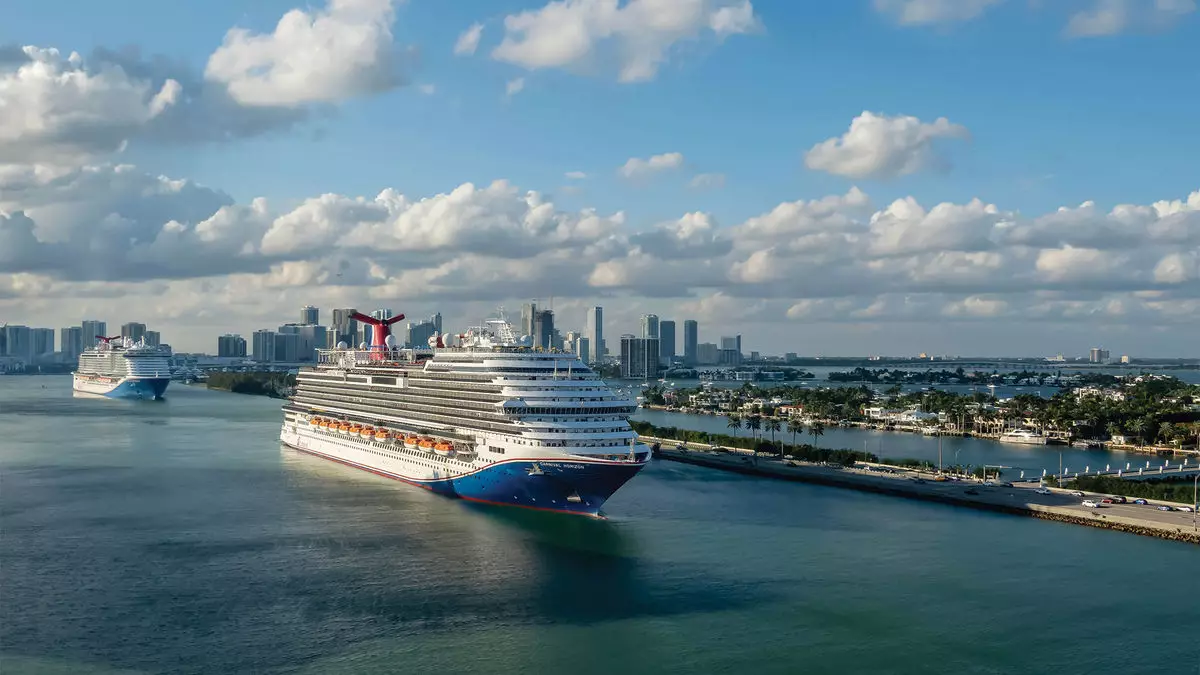Cruising has become a popular vacation choice for many travelers seeking adventure on the open seas. However, the potential for enhancing these journeys through pre- and post-cruise experiences often goes untapped. This article examines the current challenges presented by time constraints and how destination marketing organizations (DMOs) are working to shift mindsets around cruise vacations. Key insights from experts in the field reveal how integrating local experiences can enrich cruises and potentially provide economic boosts to port cities.
Jean-Paul Rodrigue, a prominent professor at Texas A&M University-Galveston, highlights a central issue hindering travelers from fully embracing local destinations before or after their cruise: the “time-budget constraint.” For many Americans, a week-long vacation is carefully planned and executable solely within the cruise itinerary. The notion of tack-on experiences, therefore, becomes a logistical challenge that often feels secondary to the primary cruise adventure. As Rodrigue notes, the port cities are often perceived as bonus destinations rather than integral segments of a traveler’s escape. This prevailing mindset poses a significant barrier to extending traveler experiences beyond just shipboard entertainment.
In response to the challenges outlined by Rodrigue, Brett Laiken from Visit Florida offers a refreshing perspective aimed at transforming how travelers perceive their cruise experience. The organization encourages cruisers to view their time in Florida not as a separate diversion but as an essential addition to their overall vacation. The message is clear: “Start your cruise the second you get here.” This approach is both strategic and aspirational, designed to inspire cruisers to think of their trip in more holistic terms. By positioning themselves as the launchpad for a grander sailing adventure, Florida’s DMO seeks to redefine the expectations of vacationers.
To actualize this vision, Visit Florida has undertaken extensive campaigns targeting cruise agents to facilitate greater pre- and post-cruise bookings. This includes organizing familiarization trips for travel advisors and utilizing various platforms—such as webinars and online training—to extend their reach. The focus is on equipping agents with the tools and knowledge necessary to effectively sell these additional travel experiences, highlighting the seamless integration of land and sea travel.
The results of Visit Florida’s initiative speak volumes, as Laiken reports that over $14 million in incremental bookings were made through travel agents involved in the program. By emphasizing a combination of cruise and local activities into one cohesive package, there is considerable room for growth in the tourism sector. The strong initial results encourage Visit Florida not only to maintain this momentum but also to collaborate with additional ports, airlines, and cruise operators to expand their successful model even further.
Florida is not alone in this endeavor, as various DMOs—like New Orleans & Co.—are discovering that cultivating robust relationships with travel advisors can be transformative for local tourism. New Orleans has prioritized tailor-made experiences for cruise-goers by focusing on personalized offers that travel agents can deliver. Rachel Funel, a senior account executive, points out how special deals and discounts help create loyalty from both clients and agents alike. These unique perks are exclusive to travel advisors, creating brand differentiation while incentivizing overnight stays and boosting local economies.
As cities continue to navigate the complexities of attracting cruise passengers, collaboration is emerging as a pivotal strategy. Organizations like Visit Lauderdale leverage their partnerships with travel firms such as Cruise Planners to initiate and promote packages that enhance pre- and post-cruise stays. Such partnerships align well with growing traveler preferences for curated experiences that meld leisure with exploration. By enabling travel planners to educate their clients about new and exciting local offerings, DMOs can create pathways that facilitate seamless transitions from cruise ships to cultural experiences on land.
The insights shared by key players in the cruise tourism sector underline the importance of strategic changes in how destinations market themselves to travelers. The overarching desire to alter perceptions around pre- and post-cruise stays is more than a marketing challenge; it is an invitation to enrich travel experiences and solidify economic growth within port cities. As DMOs persist in their efforts to reshape mindsets, the time may come when cruising becomes synonymous with a more diverse and comprehensive vacation experience, ultimately benefiting both travelers and local communities alike.

